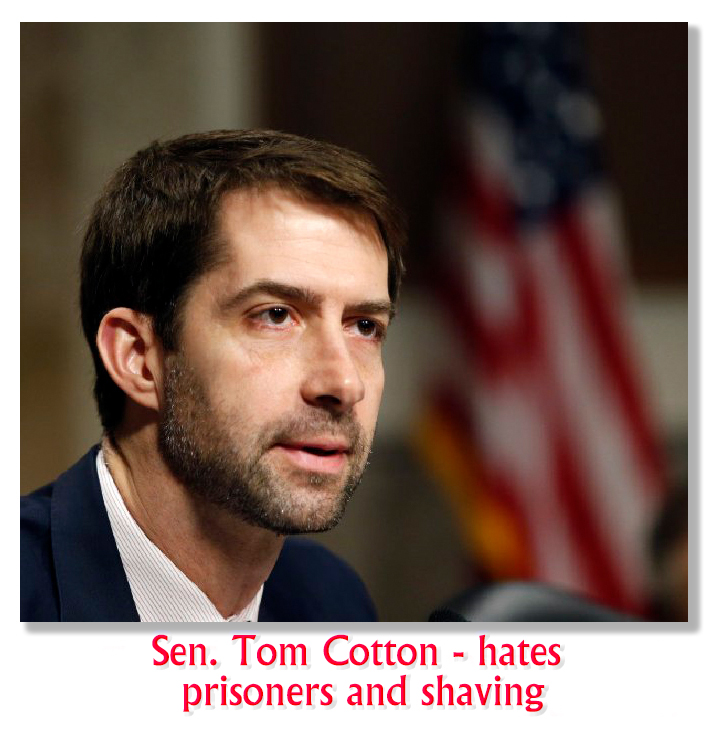 We posted our first article on federal criminal justice issues on February 16, 2014, with no real idea where this might lead. Today, we celebrate our 1500th post on trial and post-conviction matters, legislative initiatives, and sentencing issues.
We posted our first article on federal criminal justice issues on February 16, 2014, with no real idea where this might lead. Today, we celebrate our 1500th post on trial and post-conviction matters, legislative initiatives, and sentencing issues.

MONEY, THAT’S WHAT I WANT
Two decisions last week ease the burden for prisoners seeking to get in forma pauperis (IFP) status in civil and criminal cases and to get Inmate Financial Responsibility Program (FRP) withholding changed.
IFP: First, an explainer. Court’s ain’t free. Even if you decide to represent yourself (largely, a stupid idea we’ll discuss some other time), there are fees and costs. Of course, the decision to go pro se (represent yourself instead of hiring a lawyer) is usually driven by necessity: if you don’t have any money, hiring a mouthpiece is hardly an option.
Federal courts grant in forma pauperis status to people who cannot afford the $402.00 district court filing fee or the $505.00 fee for filing a notice of appeal (and thus starting an appeal). To get IFPstatus, one must file an affidavit setting out income and expenses, assets and liabilities. It’s not automatic: sometimes the affiant has too much in the bank or makes too much. But, as you can imagine, for prisoners making $5.00 a month, IFP is a necessity if they have a civil action – a tort claim, a constitutional violation for crappy medical care, even an appeal of a 28 USC § 2255 motion – to bring.
Alex Rosa sued the Connecticut prison system in federal court, alleging he received constitutionally inadequate medical care. He applied for IFP status because he believed he couldn’t pay the $402 filing fee while paying for the “necessities of life.” The district court noted that Alex reported receiving $1,200 in federal COVID stimulus funds and had an average balance of about $600 over the last six months in his prison account. The district court noted that “[a]s a prisoner, Rosa does not pay for room or board” and could “discern no reason why requiring Rosa to pay the filing fee of $402 would force him to forego the necessities of life or abandon this action.” Rosa complained that he had to send money to his family, but the district court said “that funds Rosa chose to give his mother and son, even if for their essentials, could have instead been used to pay the filing fee in his suit.”
 Last week, the 2nd Circuit reversed. An IFP motion “meets 28 USC § 1915(a)’s standard for grant when it demonstrates that the applicant cannot “pay or give security for the costs and still be able to provide himself and dependents with the necessities of life,” the Circuit ruled. To require IFP applicants to “have sworn to contribute to payment of costs the last dollar they have . . . and thus make themselves and their dependents wholly destitute would be to construe the statute in a way that would throw its beneficiaries into the category of public charges.”
Last week, the 2nd Circuit reversed. An IFP motion “meets 28 USC § 1915(a)’s standard for grant when it demonstrates that the applicant cannot “pay or give security for the costs and still be able to provide himself and dependents with the necessities of life,” the Circuit ruled. To require IFP applicants to “have sworn to contribute to payment of costs the last dollar they have . . . and thus make themselves and their dependents wholly destitute would be to construe the statute in a way that would throw its beneficiaries into the category of public charges.”
IFRP: Criminal defendants are charged at minimum $100.00 for every count of conviction, the so-called special assessment. Beyond that, they are required to pay restitution for victims’ losses and, occasionally, fines and criminal forfeitures.
The Federal Bureau of Prisons runs the IFRP to force inmates to make regular payments toward their court obligations. I am sure the BOP would quibble with my use of the word “force.” An inmate is not forced to participate, but if he or she refuses, the inmate will be denied FSA credits, will be reduced to being allowed to buy only a handful of items from the commissary, will be denied halfway house or home confinement, will not be able to earn more than a bare subsistence pay of a little more than $5.00 a month, will be housed in the lowest form of housing available, will not be allowed to work outside the fence even if he or she has the appropriate security and custody rating, and will not get a year off as incentive for completing the RDAP drug abuse program. Read the list, starting at page 11 of the BOP Program Statement.
 Eric Sweatt is doing time for bank robbery. He had been paying into FRP while he was working UNICOR, but he got sick and was sent to a BOP medical facility, where – as a patient – he was not allowed to work. Eric declined FRP while he had no income, for which he was punished by BOP rules for FRP refusniks. He then filed a motion under 18 USC § 3664(k) to modify his judgment to halt his restitution payments until he recovered from surgery. If the court said Eric didn’t owe while incarcerated, the BOP could not force FRP on him.
Eric Sweatt is doing time for bank robbery. He had been paying into FRP while he was working UNICOR, but he got sick and was sent to a BOP medical facility, where – as a patient – he was not allowed to work. Eric declined FRP while he had no income, for which he was punished by BOP rules for FRP refusniks. He then filed a motion under 18 USC § 3664(k) to modify his judgment to halt his restitution payments until he recovered from surgery. If the court said Eric didn’t owe while incarcerated, the BOP could not force FRP on him.
The district court ruled it lacked authority to modify FRP payment plans. Earlier this month, the 7th Circuit reversed.
The 7th observed that Eric did not seek “to alter the fact or amount of restitution or to usurp the BOP’s exclusive authority to impose a pre-release payment plan. He requested only that the court adjust his ‘payment terms’ based on a change in his economic circumstances… In general, district courts lack jurisdiction to modify a sentence, but they can do so when authorized by statute… And as Sweatt pointed out, 3664(k) gives the district court the authority to do what he asked.”
Rosa v. Doe, Case Nos. 21-2628(L), 2023 U.S.App. LEXIS 30785 (2d Cir., Nov. 20, 2023)
United States v. Sweatt, Case No. 23-1752, 2023 U.S.App. LEXIS 29798 (7th Cir., Nov. 8, 2023)
– Thomas L. Root









